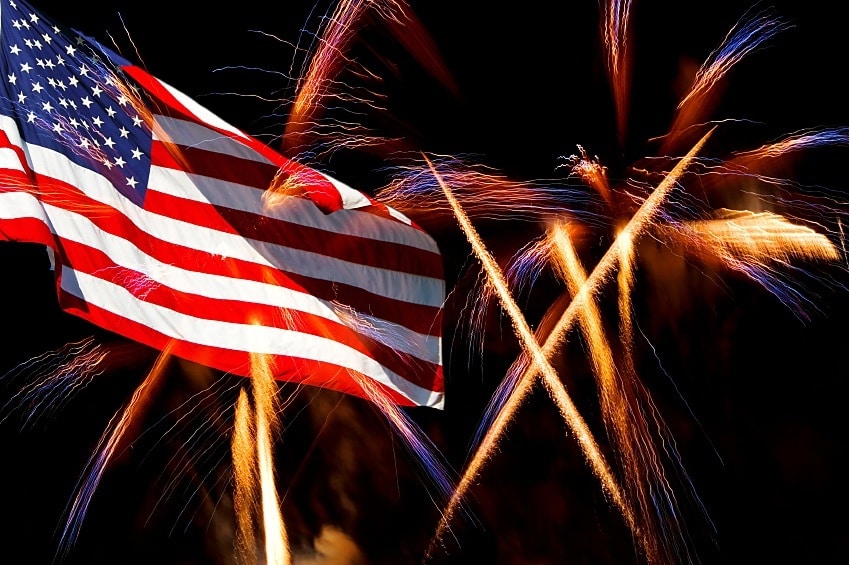July 4, 2015
One of the classic American hymns, “God of Our Fathers,” was written by an Episcopal priest to commemorate the centennial of the Declaration of Independence in 1876 and later set to a new hymn tune called “National Hymn.” The tune’s title perfectly fits both the hymn’s majestic melody and its solemnly stirring words.
As befits good Christian hymnody, God of Our Fathers begins with praise of God’s awesome majesty:
God of our fathers, whose almighty hand
Leads forth in beauty all the starry band
Of shining worlds in splendor through the skies
Our grateful songs before Thy throne arise.
The second verse then announces the hymn’s particular motive of national thanksgiving for the blessing of a free country governed and guided by divine law:
Thy love divine hath led us in the past,
In this free land by Thee our lot is cast,
Be Thou our Ruler, Guardian, Guide and Stay,
Thy Word our law, Thy paths our chosen way.
Finally, following the traditional dynamic of Christian prayer, the third and fourth verses moves from praise and thanksgiving to earnest petition:
From war’s alarms, from deadly pestilence,
Be Thy strong arm our ever sure defense;
Thy true religion in our hearts increase,
Thy bounteous goodness nourish us in peace.
Refresh Thy people on their toilsome way,
Lead us from night to never ending day;
Fill all our lives with love and grace divine,
And glory, laud, and praise be ever Thine.
Fitting sentiments for Independence Day in any year, but especially in this challenging time when privatized, anti-social notions of freedom dominate our national conversation, and as religion’s historic and essential role our nation’s public life is increasingly diminished.
On July 4, 1976, the United States celebrated the bicentennial of its independence. Many of us remember the various festivities – notably the parade of “tall ships” in New York. Since the holiday fell on a Sunday, for many the bicentennial began with a Mass at New York’s oldest Catholic church, St. Peter’s on Barclay Street, celebrated by Servant of God Terence Cardinal Cooke. It was at St. Peter’s that St. Elizabeth Ann Seton, the first U.S. born canonized saint, was received into the Catholic Church in 1805. And it was St. Peter’s which honored the first official casualty of the Sept. 11, 2001 terrorist attack when the body of Fire Department Chaplain Franciscan Father Mychal Judge was brought by firefighters to St. Peter’s and laid before the altar. St. Peter’s has seen it all from the earliest years of the republic to the present – a vivid symbol of the presence of a vibrant Catholic Church in the United States from its earliest years to the present, in good times and in bad, on days of national rejoicing and on days of national tragedy and mourning.
On this Independence Day, we recall the vital part played by Catholic immigrants from far and near in building this country, and the incredible network of Catholic hospitals, schools, and other institutions which have served Americans of all religions and enriched our shared identity and common American culture. We celebrate also the bounty of this land and its free institutions – the two principal blessings which beckoned our distant or more recent ancestors to these shores and which continue to appeal to immigrants today.
The first week of July also recalls the founding of the Paulist Fathers by Servant of God Isaac Hecker (together with Augustine Hewit, George Deshon, and Francis Baker) in New York City on July 7, 1858. Hecker’s vision of the mission of the Paulist Fathers to the people of the United States was a monumental one of vibrant Catholic outreach to evangelize American culture in response to its citizens’ deepest human aspirations. In one of his last Catholic World articles, published in the year he died, Hecker, quoting an anonymous acquaintance, said “he didn’t care for union of church and state if he could have union of church and people.”
